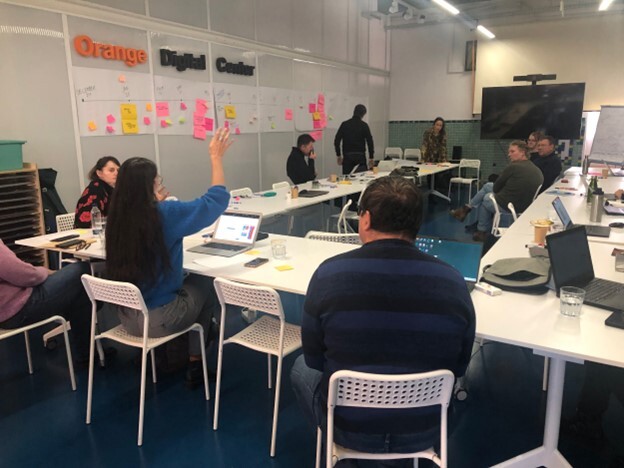News
Bucharest: ACCE Project meeting - preparing for the final countdown
At the end of November, the ACCE project partners gathered in Bucharest for their consortium meeting. Hosted by Cooperativa de Energie, this two-day event was more than just a project milestone—it was a celebration of progress, partnership, and a shared commitment to advancing the participation of citizens in the energy transition by improving access to finance.
Kickstarting the conversation: connecting with Romanian financiers
Ahead of the consortium meeting, a special mentor session was organized with Romanian financial institutions, facilitated by Cooperativa de Energie. This initiative aimed to bridge the gap between local financiers and energy communities, introducing them to the potential of Community Energy Financing Schemes (CEFS).

Inspired by examples from the Netherlands and the UK, the session sparked meaningful discussions on how banks, private and public investors in Romania can support citizen-led energy projects, laying the groundwork for stronger financial engagement in the country’s energy transition.
In total 31 participants joined our conversations, of which 15 people from NGOs (Greenpeace Romania), banks (OTP Bank, Patria Bank, ProCredit Bank, Raiffeisen Bank), the Ministery of Energy (two representatives that are part from the working group regarding the energy community secondary legislation), Bucharest University, press, non-banking financial institutions (AFIN), and 1 member of Cooperativa de Energie.
Collaborating for impact: taking stock and planning ahead
The consortium meeting brought together ACCE partners from across Europe to reflect on their project journey and set ambitious goals for the project’s final year. Through interactive workshops and strategy sessions, partners shared their successes, tackled challenges, and refined their vision for the next and last project year.

Energy communities in action: progress across CEFS pilots
From solar rooftops to community district heating, the progress of developing or expanding Community Energy Financing Schemes in the pilots in Belgium, Romania, Spain, Croatia, The Netherlands and France was a key focus. Over the last couple of months, all pilots managed to sign a memorandum of understanding with financial partners in their countries. The next year, they will further focus on building out the business model and plans for the Financing scheme.

Creating a shared vision: the Charter for CEFS
A highlight of the meeting was the ongoing development of the Charter for Community Energy Financing Schemes. This document is set to become a cornerstone for ethical, transparent, and community-oriented energy financing across Europe. Built on values like transparency, community benefit, and democratic control, the charter reflects ACCE’s commitment to a fair and sustainable energy future.
Looking to the future: vision for the next EU multiannual financial framework

Achieving Europe’s climate and energy goals will require hundreds of billions of euros in additional annual investments. Discussions have already started around the shape and structure of the next EU budget. The so-called “Multiannual Financial Framework”, which will run from 2028-2034, will be key for Europe and its Member States to achieve the bloc’s shared objectives.
While in the current EU budget many Member States recognise energy communities as a target beneficiary of EU funds, significant challenges persist: national authorities that manage EU funds are often not familiar with the concept of energy communities, and vice versa energy communities think EU funds are too distant and bureaucratic to engage with.
For these reasons, REScoop.eu facilitated a session on the Federation’s vision for energy communities in the next EU budget. The overarching idea is to create a pan-European Facility, whereby the European Investment Bank provides counter-guarantees to all national development banks. The latter then provide guarantees to commercial banks, who in turn may provide cheaper (‘green’) loans to energy communities. A key nuance that was explored was the role of national Federations of ‘secondary structures’ of energy communities. Those, building on the successful example of established Community Energy Financing Schemes, can provide capacity building to energy communities at the national level, to mature their business plans, and ultimately apply for the loans. These federations can also help standardize the application process, expediting the process and providing security to the loan providers (banks).
The aforementioned scheme could be capitalized through InvestEU and by resources previously dedicated to energy communities in other EU funds (e.g., European Regional Development Fund, Just Transition Fund).
